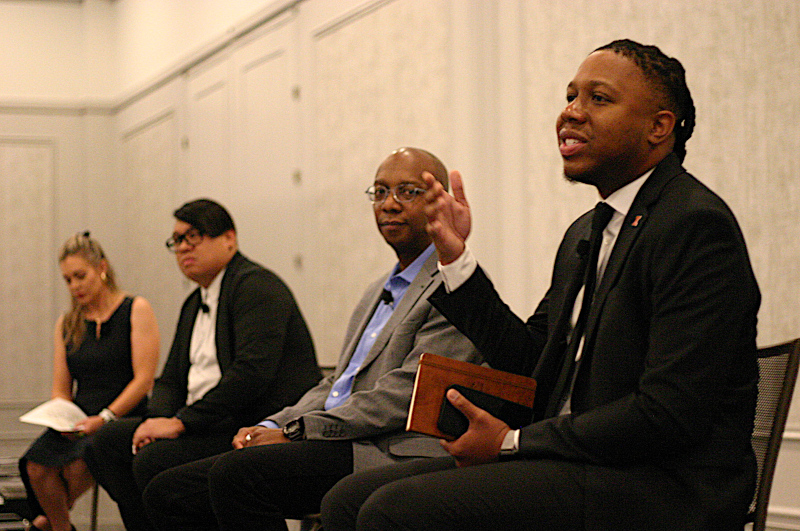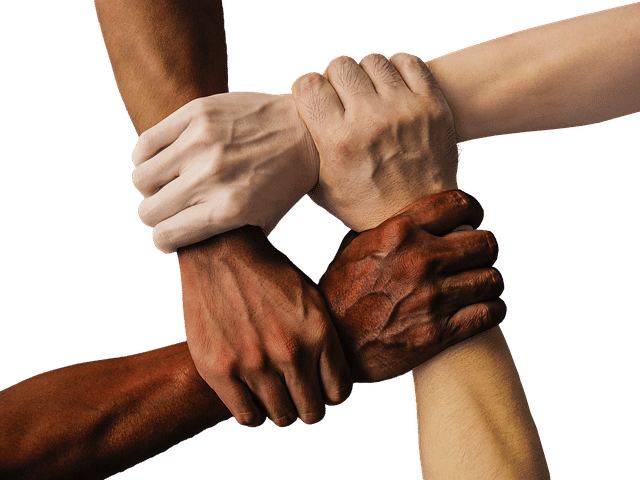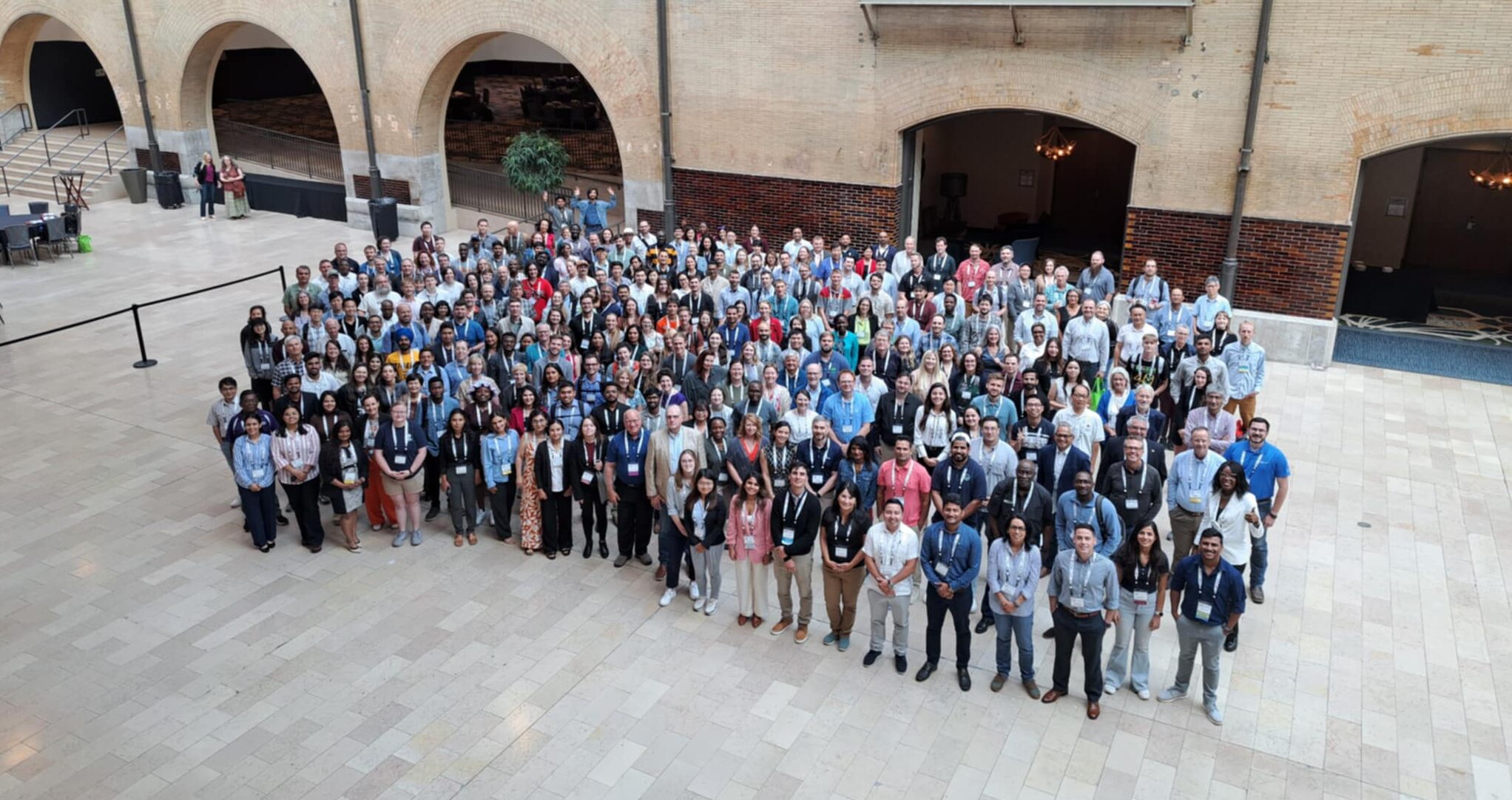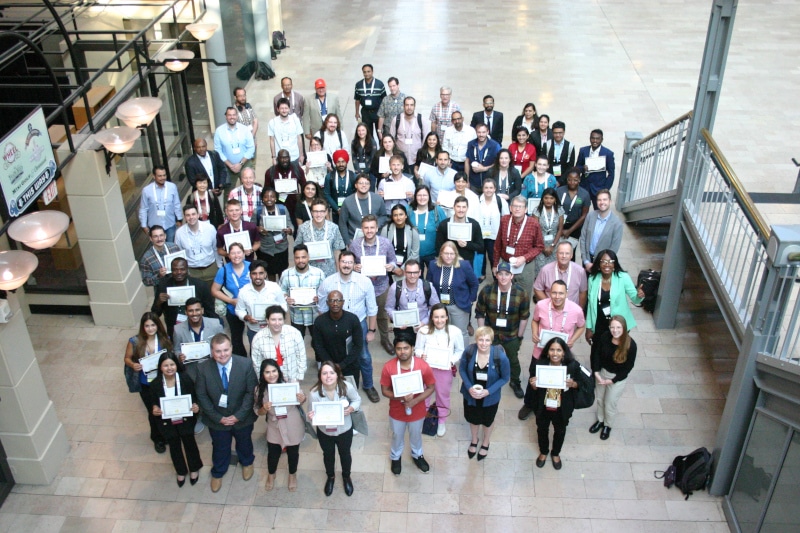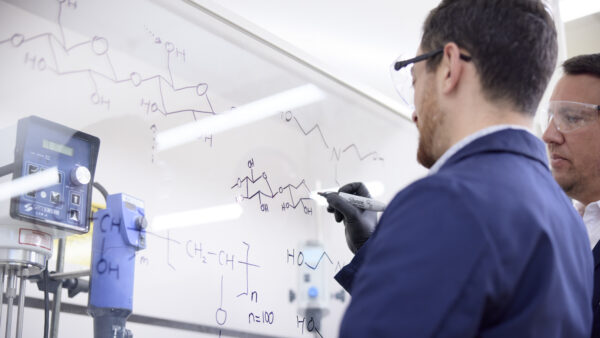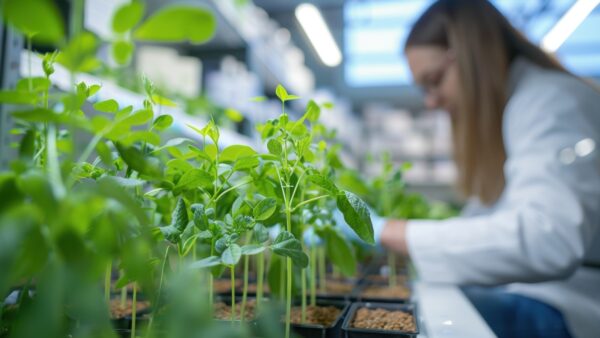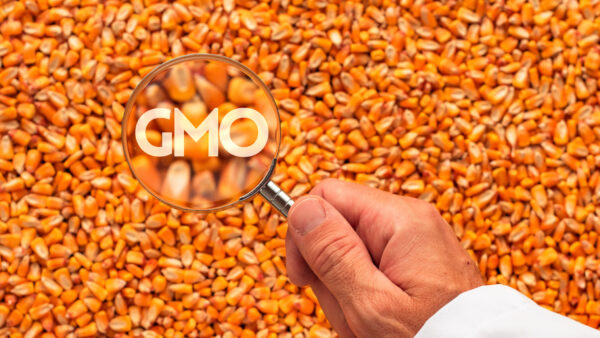The National Association for Plant Breeding (NAPB) kicked off its biggest meeting ever today as it held its Diversity and Inclusion Dinner at the St. Louis Union Station Hotel. Over 400 are registered for the meeting, making it the NAPB’s most successful meeting since the association began in 2010.
“The NAPB is more relevant than ever,” said incoming president J.D. Rossouw, who serves as senior VP and head of vegetables research & development for Bayer Crop Science. The NAPB has officially changed its name from the National Association of Plant Breeders to the National Association for Plant Breeding in order to welcome as diverse a membership as possible.
Tonight’s event welcomed four speakers who tackled the issue of diversity, equity and inclusion (DEI) in the context of food security: Kristine Callis-Duehl, principal investigator and the Donald Danforth Plant Science Center; Jeremy Williams, Head of Climate LLC, Digital Farming Solutions and Commercial Ecosystems, Bayer Crop Science; Justin Raymundo, director of regional workforce strategy, BioSTL; and Bobby Smith II, assistant professor in the Department of African American Studies at the University of Illinois at Urbana-Champaign.
It was an apt time to hold the panel, just one week after Tractor Supply and three days after John Deere announced they’re backing away from DEI efforts after a backlash among conservatives.
“I think John Deere is following what they see as a trend. Tractor Supply was probably the first to be public about rolling back diversity, equity, inclusion, and accessibility initiatives, which they call cultural awareness efforts and non-business activities,” Daymundo told Seed World.
And now, John Deere is following suit.
“This is disappointing for those of us working to build an agricultural workforce that reflects our diverse community. I believe these diverse perspectives are critical for building trust in our industry, our food supply, and our new innovations.”
It’s shortsighted to dismiss programs like participating in Pride events or setting goals based on diversity, equity, inclusion, and accessibility, he said. By not focusing on these, agriculture risks having a less diverse workforce and leadership, which will ultimately erode the trust that communities have in its work.
“There’s a fear or politicization around making diversity, equity, inclusion, and accessibility central to a business. This fear is often due to a misunderstanding of these concepts.”
Daymundo believes it’s important to be transparent about what we mean by diversity, equity, inclusion, and accessibility.
“These values are essential for building trust, creating more inclusive and innovative teams and companies, and driving groundbreaking technologies that will transform agriculture to feed more people, fuel the world, and conserve resources. We need to reframe this work so that businesses understand its core to what we do every single day in agriculture.”
Rollbacks of DEI efforts forget a basic fact, Williams told Seed World.
“It’s been well established that diverse teams are more productive. Another important aspect is attracting more people to your organization. Potential hires are looking for inclusivity and diversity in a workplace. This is a crucial part of your business proposition when it comes to hiring,” he said.
“Diverse teams are more engaged and productive, which helps attract and retain the best talent. In agriculture, where there are so few of us involved, connecting with the broader society is vital. When people see themselves reflected in our work, it enhances our freedom to operate and builds trust in what we do.”
Business 101
However, Smith said such rollbacks are unfortunately to be expected when businesses face a backlash from shareholders.
“It’s to be expected every time we’re talking about a cultural shift. When you start shifting culture, you’re undermining those who are in power. So we’re talking about a culture shift that’s igniting a power struggle. So then it makes sense people are rolling back DEI because they want to protect themselves from that,” he said.
“Companies operate based on their shareholders and the demographics of their shareholders. So shareholders say, ‘We don’t want you to do this anymore.’ When that happens, they have to stop. So it was it was only a matter of time that they were going to end up rolling back DEI efforts, because history has shown us that every time we want to make these cultural shifts, there’s always a backlash and a pushback, and that’s what we’re seeing right now.”
He says agriculture has to be better prepared for pushback.
“Companies need DEI so long as it helps the bottom line. As soon as it doesn’t, they say, ‘We don’t need it anymore.’ It’s Business 101.”
An increasing number of people don’t know where their food comes from, let alone that there’s an entire science behind breeding crops, Callis-Duehl said. This is key when it comes to understanding the link between DEI efforts and food security.
“Science helps us produce better crops with less environmental impact, higher yields, and reduced land, water, and fertilizer use. By achieving this, we’re able to feed the population on less, ensuring that basic needs like food, shelter, safety, and security are met. When these fundamental needs are met, we see stability. People can get to their jobs, function properly, and process information because they’re receiving the necessary calories, macronutrients, and micronutrients,” she said.
This enables them to perform well in school and work, driving the economy forward. However, when these needs aren’t met, people struggle to fulfill their roles, leading to poverty and a cycle of food and health care disparity. This results in unrest because people will always strive to meet their basic survival needs. The St. Louis core urban area, where this year’s NAPB meeting is being held, has twice the national poverty rate, it was noted during the panel.
“If the existing infrastructure doesn’t provide these necessities, people will fight against it, leading to potential uprisings, policy changes, or voting in new regimes. A stable government and economy require people to have access to healthy, nutritious food that meets all their nutrient requirements. This is where plant breeders come in. They develop the solutions essential to the stability of our country by ensuring a reliable supply of nutritious food.”


